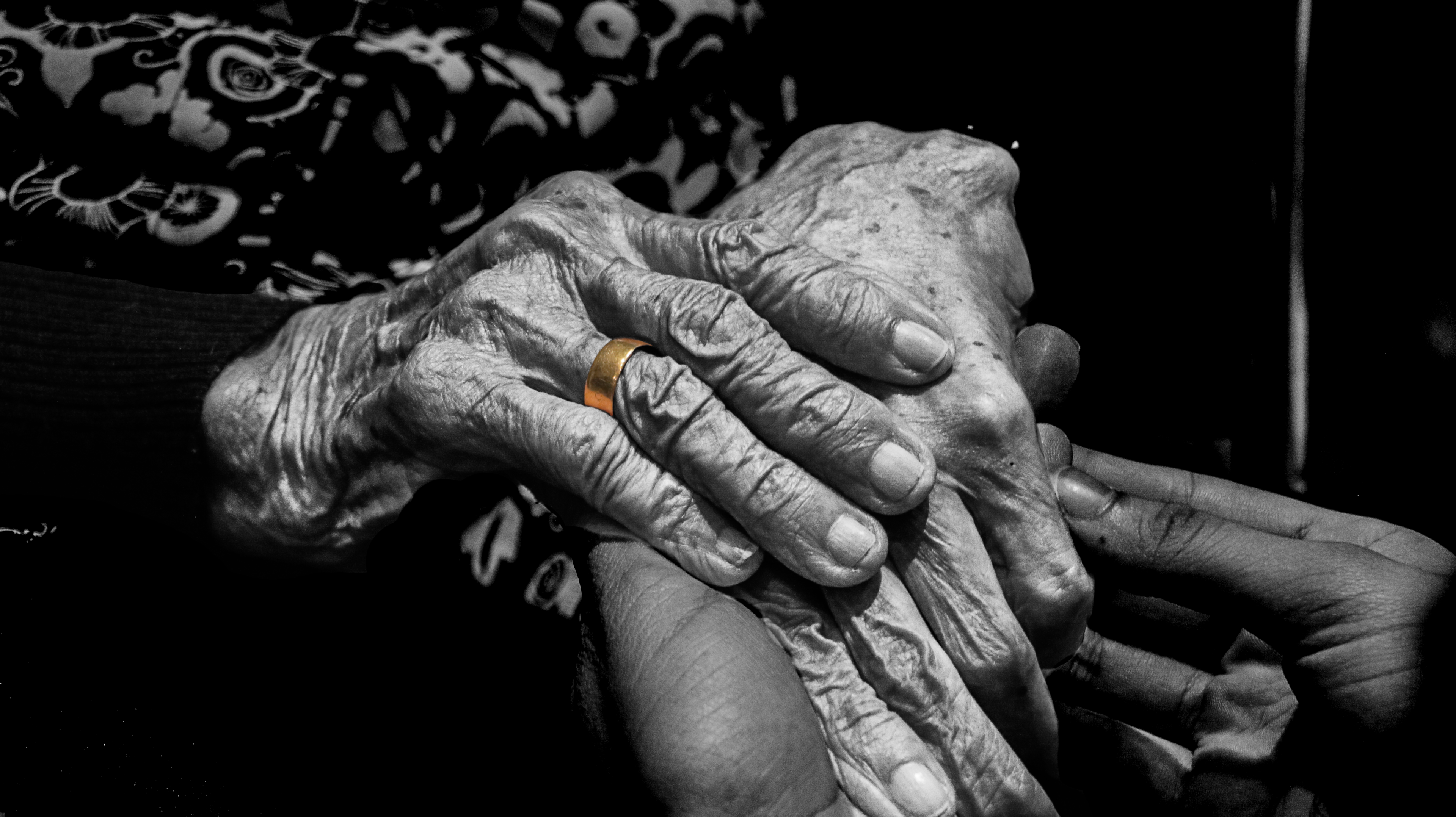Navigating the complexities of caring for aging parents can be a profound journey, demanding foresight, compassion, and strategic planning. As the dynamics of the parent-child relationship evolve, the responsibility often shifts to the adult children, thrusting them into unfamiliar territory. In such pivotal moments, a well-structured caring for aging parents checklist becomes an invaluable tool, providing a roadmap to address multifaceted aspects—from living conditions and health considerations to legal matters and financial planning. In this guide, we delve into the intricacies of this challenging yet essential task, offering insights, practical tips, and a comprehensive approach to ensure the well-being of your aging loved ones.
Contents
A Comprehensive Caring for Aging Parents Checklist
There comes a time in life when the roles reverse, and adult children find themselves caring for their aging parents. This period of life may seem overwhelming, especially if you are unprepared and unsure of what to expect. However, with the right resources and a comprehensive caring for aging parents checklist, everything becomes clear and you can plan and ensure that your parents receive the best possible care. This article provides a detailed guide on caring for aging parents, covering all aspects from their living conditions, health, and legal matters to finances and safety measures.

Importance of Caring for Aging Parents Checklist
Most of the time, a caring for aging parents checklist is not really thought of as important or needed. When Dad had a stroke and needed constant care, our family decided to keep him in his home as long as possible. With some planning and the ability to make changes, we kept him home until he moved in with us. Having a checklist would have helped us immensely. Most of our guidance came from remembering how our parents provided in-home senior care for both my maternal Grandmother and paternal Grandmother. While that was quite helpful, our situation was different in many ways.
Understanding Changes in Dynamics
As your parents enter their golden years, their needs and abilities will change. They may need help with daily activities, require additional medical care, and may even need to adjust their living arrangements. Understanding these changes and how they impact your parents’ overall well-being is crucial.
Recognizing the signs of aging and the need for additional support can be challenging. However, it is an essential first step in planning for their care. Keep an open line of communication with your parents, discussing their needs, preferences, and any concerns they may have.

Evaluating the Living Situation
One of the first things to consider when planning for your aging parents’ care is their living situation. Is their current home safe and suitable for their needs? Do they need home modifications to make it more accessible and safe? Can they live alone, or would they benefit from moving into a senior living community or moving in with family?
Home Safety
If your parents are living in their own home, it’s crucial to assess the safety of their environment. Here are some points to consider:
- Remove Tripping Hazards: Ensure walkways are free of clutter and potential tripping hazards like cables and loose rugs.
- Install Safety Measures: Consider installing handrails, grab bars, and shower seats in the bathroom, and ensure that there’s adequate lighting in all areas of the house.
- Check Home Appliances: Regularly assess the condition of home appliances and electronics to ensure they are functioning properly and pose no safety risks.

Senior Living Options
If your parents’ current living situation is not suitable or safe, consider other housing options. There’s a range of senior living communities available that provide varying levels of care, from independent living communities to assisted living and nursing homes. These communities often offer personal care, medical assistance, social activities, and more.

Financial Planning
Clearly understanding your parent’s financial situation is crucial when planning for their care. Their financial resources will impact the level of care they can afford and the assistance they can receive.
Know Their Financial Status
Start by listing all your parents’ financial accounts, including bank accounts, pensions, 401(k) information, annuity contracts, and any investments. Also, gather information about their income sources, such as Social Security benefits and retirement funds.
Handle Outstanding Debts
Create a repayment plan if your parents have outstanding debts, like a mortgage or loans. This will help ensure that their financial resources are used effectively, and their debts are managed correctly.
Understand Insurance Plans
It’s also important to understand your parents’ insurance coverage. This includes health insurance, life insurance, long-term care insurance, and any other policies they may have. Ensure these policies are adequate and up-to-date to meet their current and future needs.
Dealing with Legal Matters
Legal matters are another significant area to consider when caring for aging parents. Having the necessary legal documents in place can save you from unnecessary legal and financial chaos during a challenging time.
Power of Attorney
A power of attorney (POA) is a legal document that allows your aging parent to appoint someone to make decisions on their behalf if they cannot do so. There are two types of POA – a durable power of attorney for finance and a healthcare power of attorney. The first allows the designated person to handle financial matters, while the latter gives them the authority to make healthcare decisions.
Living Will
A living will, also known as an advance healthcare directive, outlines your parents’ healthcare wishes and instructions in case they become unable to make medical decisions for themselves.
Estate Planning Documents
Estate planning is another crucial aspect of legal matters that needs attention. This includes having a last will that outlines your loved one’s wishes regarding the distribution of their assets after their death. If your parents have a living trust, ensure all the relevant documents are up-to-date.
Managing Health and Medical Care
Your parents’ health and medical needs are another critical aspect of caring for aging parents. You need to understand their healthcare needs, manage their medications, and ensure they have regular medical check-ups.
Understanding Medical Needs
Start by conversing with your parents about their health status and medical needs. If possible, establish a relationship with their primary care physician and other healthcare providers. This will let you stay informed about their health status and any changes in their condition or treatment plans.
Managing Medications
One of the key responsibilities of caregivers is managing their parents’ medications. This involves ensuring they take their medications as prescribed, helping them refill their prescriptions, and monitoring for any side effects or interactions between different medications.
Scheduling Regular Check-Ups
Regular medical check-ups are crucial for early detection and management of health issues. Help your parents schedule their appointments and, if possible, accompany them. This not only provides moral support but also allows you to discuss their health with their doctor.
Ensuring Safety
Safety is a critical concern when caring for aging parents. From their living environment to their driving abilities, each aspect needs careful consideration to ensure your parents’ safety.
Driving Safety
As your parents age, their driving abilities may decline. It’s important to discuss this issue with them and consider alternative transportation options if necessary. This could involve organizing rides with family members, using community transportation services, or utilizing rideshare apps.
Monitoring Systems
Investing in monitoring technology can provide an added layer of safety for your parents. This can include alarm systems, security cameras, and wearable devices that can detect falls and alert emergency services.
Setting Boundaries and Knowing Your Limits
Organization can become really important. Taking care of aging parents often seems emotionally and physically demanding. It’s important to understand your limits and set boundaries to prevent burnout. This could involve scheduling regular breaks and time for self-care, delegating certain tasks to other family members, or seeking help from professional caregivers. That is why a caring for aging parents checklist is so important.
In my case when caring for my Dad, my teenagers stepped in to help when I needed it. Family members such as a teenager or adult child make the transition much easier. My Dad adored my kids, so he always welcomed spending time with them when I needed it. I didn’t leave them often due to some of the care he required. But those half-hour breaks once in a while made a big difference.
Seeking Help When Needed
Finally, remember that you don’t have to do everything on your own. Many resources are available to help you in your caregiving journey. Whether it’s hiring a professional caregiver, utilizing respite care services, or moving your parents to a senior living community, know that help is available.
Caring for aging parents can be a complex and challenging task, but with the right preparation and resources, you can ensure that your parents receive the care and support they need. Remember, every situation is unique, and what works for one family may not work for another. Stay flexible, be patient, and most importantly, communicate openly with your parents about their needs and wishes.
Ensure the safety and peace of mind for your cherished elders with our discreet wireless call buttons, crafted to provide invaluable assistance in moments of uncertainty. Explore this safety solution for enhanced well-being, and your support also aids in sustaining this platform. #sponsored #affiliatelinks
Video Credit: @SofiaAmirpoor
A Conclusive Guide to Caring for Aging Parents
In your journey of caring for aging parents, empowerment comes from knowledge and preparation. As you navigate the intricacies outlined in this guide, remember that seeking assistance and building a support network are crucial steps. Your commitment to understanding, planning, and adapting will make a significant impact on the quality of life for your loved ones.
Embrace the ongoing conversation with your aging parents, initiate those challenging but essential discussions about their preferences, and continuously reassess their evolving needs. Connect with communities, both online and offline, to share experiences and gather insights. Seek professional advice when necessary, and remember, you are not alone in this journey.
In nurturing the golden years, your proactive approach can transform challenges into opportunities, ensuring that the journey is not only manageable but also a source of fulfillment for both you and your aging parents.
Frequently Asked Questions for Caring for Aging Parents Checklist
How can I ensure my aging parents' safety at home?
Conduct a home safety assessment, remove hazards, and install necessary aids like handrails.
What medical information and records should I keep track of for my aging parents?
Maintain a comprehensive list of medications, medical history, and contact information for healthcare providers.
Are there any specific legal documents I need to have in place for their care?
Yes, essential documents include a will, power of attorney, and advance healthcare directives. These documents will ensure that you can perform all that needs to be done in caring for your elderly loved one.
How do I initiate conversations about their preferences for end-of-life care?
Choose a calm moment, express your concern, and ask open-ended questions to understand their wishes.
Follow Our Other Socials
? Hey friends! ? Did you know that the golden years can be our senior parents’ most vibrant and fulfilling chapter of life?
?✨ If you’re on a quest for a one-stop destination that caters to the unique needs and joys of our beloved elders, then look no further!
??? Expert Guidance: Access a treasure trove of expert advice on healthcare, lifestyle, and emotional well-being tailored specifically for seniors. For expert guidance, check our Facebook page.
Community Connection: Join a warm and supportive community of like-minded individuals who share stories, exchange ideas, and celebrate the joys of senior living.
??? Best check our Twitter for awesome connections!
Inspiration Galore: Be inspired by uplifting stories, motivational quotes, and heartwarming experiences that showcase the resilience and wisdom of our senior loved ones.
Here, our Instagram and Pinterest will surely fill your feeds with the best stories.











